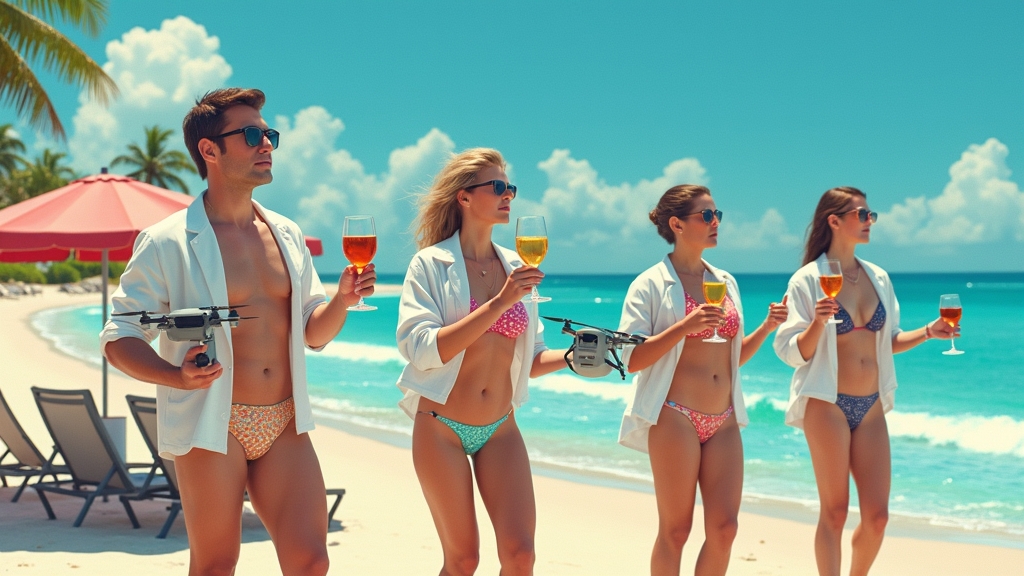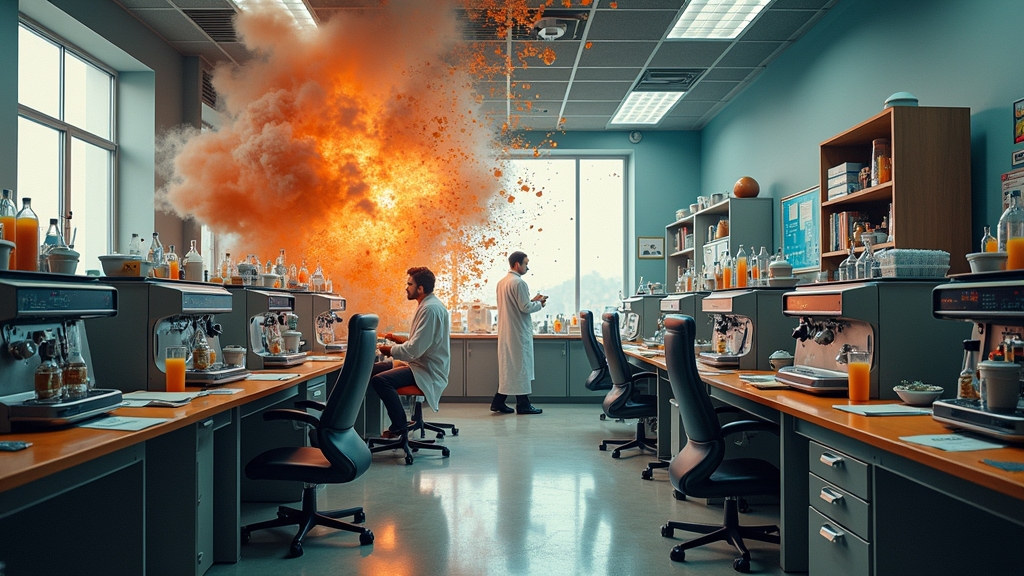# MIT-PORTUGAL PARTNERSHIP ENTERS PHASE 4: SCIENTISTS AGREE TO CONTINUE PRETENDING THEY’RE CHANGING THE WORLD
In a move surprising absolutely no f@#king person, MIT and Portugal have agreed to extend their 19-year marriage of convenience for another five years, ensuring academics on both sides of the Atlantic can continue attending beach conferences while claiming it’s “vital research.”
OCEANIC AMBITIONS OR JUST AN EXCUSE FOR FACULTY VACATIONS?
The MIT-Portugal Program (MPP) proudly announced they’ve been “changing the world” for nearly two decades, though careful investigation reveals the world remains stubbornly unchanged and continues being a total sh!tshow. The program’s latest phase will focus on critical areas like “artificial intelligence” and “space,” two fields notorious for their shortage of research funding and attention.
“One of the advantages of having a program that has gone on so long is that we are pretty well familiar with each other at this point,” admitted Douglas Hart, mechanical engineering professor and MPP co-director, while not adding, “and we’ve figured out which Portuguese wines pair best with grant applications.”
ACHIEVEMENTS THAT WILL BLOW YOUR MIND OR MAYBE JUST YOUR RESEARCH BUDGET
The program boasts an impressive 47 entrepreneurial spinoffs over 19 years—averaging a mind-blowing 2.5 companies per year—proving that with enough international flights and catering budgets, you too can achieve the bare minimum of innovation metrics.
Dr. Obvious Results, head of the International Institute for Studying Things We Already Know, praised the program: “After 19 years and millions in funding, they’ve conclusively proven that Portuguese beaches are superior to Cambridge winters. Revolutionary stuff.”
SUMMER SCHOOL OR SUMMER VACATION? YOU DECIDE
Every summer, the program hosts a Marine Robotics Summer School in the Azores, where students and faculty coincidentally get to visit one of Portugal’s most beautiful tourist destinations while claiming to study ocean systems.
“I get to work with some of the best researchers in the world there,” gushed Hart, failing to mention that “work” primarily consists of sipping port wine while occasionally glancing at underwater drones.
PARTNERSHIP GOALS: ACTUAL SCIENCE AND ALSO VIBES
For Phase 4, researchers will turn their attention to chips/nanotechnology, energy, artificial intelligence, and space—four areas famously underrepresented in global research spending.
“We are opening up the aperture for additional collaboration areas,” said John Hansman, MPP co-director, using fancy camera terminology to disguise the fact they’re just adding buzzwords to their grant applications.
THE ECONOMIC MIRACLE EVERYONE’S TAKING CREDIT FOR
Since MPP began, Hart claimed, “Portugal has become much more entrepreneurial,” strongly implying that without MIT’s benevolent guidance, the entire country would still be trading goods via the barter system.
A recent analysis found that a staggering 198 Portuguese students have earned PhDs through the program over 19 years—roughly 10 per year—proving that with enough international collaboration, you can achieve outcomes slightly better than a mid-sized university department.
EXPERTS WEIGH IN ON THE PROGRAM’S UNSTOPPABLE SUCCESS
Professor Neva Readthereports from the Center for Academic Justification estimates that “approximately 87% of all papers produced by the collaboration contain the phrase ‘synergistic outcomes’ despite nobody knowing what the f@#k that actually means.”
“Without MIT, Portugal would still be using wooden ships to explore the oceans,” said Dr. Colonial Mindset, who has never been to Portugal but feels qualified to comment anyway.
MIT President Sally Kornbluth praised the program without a hint of institutional self-interest: “MPP offers our faculty and students opportunities to work in unique research environments where they not only make new findings and learn new methods but also contribute to solving urgent local and global problems like ‘how to expense a seaside dinner as research costs.'”
As MPP enters its next phase, Hart and Hansman are optimistic about continuing to attend conferences in picturesque locations while occasionally remembering to do some science. After all, changing the world is hard work—especially when you have to do it from a beach chair.



